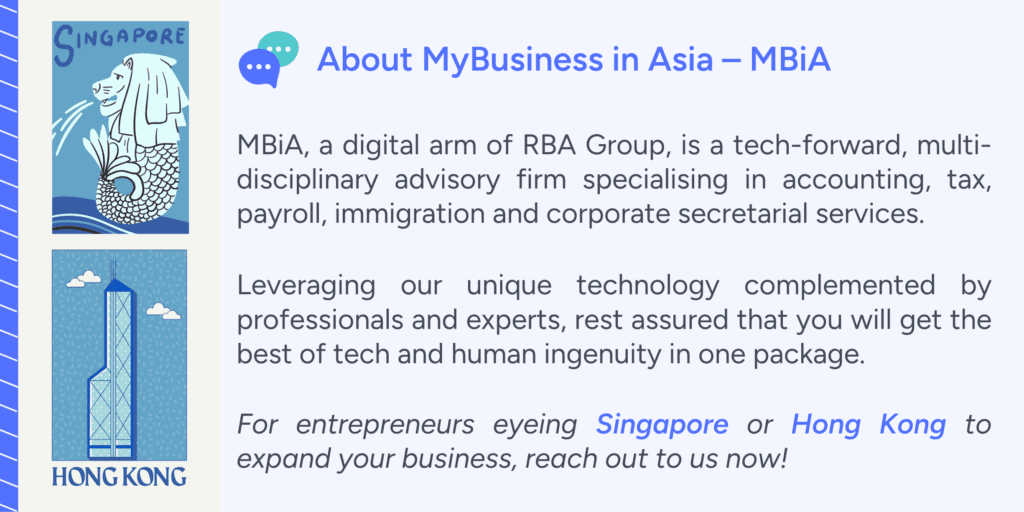In Singapore’s startup ecosystem, raising funds is never just about having a brilliant idea. It’s about showing investors that your business is built on discipline, foresight, and legal readiness. Founders often learn this lesson the hard way. Many walk into investor meetings full of energy, passion, and vision, only to be asked a question they were not prepared for: “Please send us your pitch deck, term sheet, shareholders’ agreement, and your latest company resolutions.”
This is the moment where deals are either accelerated or silently lost. Not because the startup lacks potential but because it lacks preparation. In Singapore, a global hub for business excellence, readiness is everything. Investors expect more than innovation. They expect structure, and this structure comes from having the right documents in place before the first cheque is written.
In this article, we’ll guide you through every critical compliance step, from building investor-ready documents to mastering ACRA requirements.
- Essential documents for the investors
- Singapore’s legal requirements
- Common compliance errors
- Preparing for investor engagement
1. The 5 essential documents every investor wants to see
In Singapore’s professional investment landscape, every serious founder needs to prepare these four key fundraising documents. They are more than paperwork; they are signals of operational maturity.
Pitch deck & financial projections
Your pitch deck tells the story of your company: the problem you solve, the market opportunity, your competitive edge, and your vision for growth. But in Singapore, this story must stand on the strength of your numbers. The Monetary Authority of Singapore (MAS) expects financial projections in investor communications to be fair, realistic, and supported by credible market data. Revenue forecasts, customer acquisition costs, and scaling strategies should align with independent research and industry benchmarks. Founders who exaggerate numbers risk losing investor trust fast.
Term sheet
A term sheet is a non-binding but critical document that outlines the terms of the proposed investment. It addresses valuation, ownership, voting rights, exit clauses, and investor protection terms. In Singapore, smart founders structure their term sheets in line with the Companies Act 1967 to avoid future compliance issues. Investors appreciate term sheets that show clarity, fairness, and respect for the legal process. A clean term sheet reflects founder maturity and signals readiness for formal negotiations.
Share Subscription Agreement
A share subscription agreement is a contract between a company and an investor, where the investor agrees to acquire ownership in the company by subscribing to newly issued shares. Its main purpose is to clearly define the terms of the investment and ensure that all parties, including shareholders, understand the procedures and conditions related to the investor’s contribution to the company.
Shareholders’ agreement
While the term sheet captures commercial terms, the shareholders’ agreement protects the long-term governance of the business. It defines key operational aspects like decision-making rights, dispute resolution processes, share transfer conditions, and founder obligations. In Singapore, a well-drafted shareholders’ agreement prevents future misunderstandings and aligns all parties with clear rules and expectations, a critical element in any fast-growing startup.
Company resolutions
Company resolutions are often overlooked, but in Singapore, they matter deeply. These formal documents record board and shareholder decisions such as issuing new shares, appointing directors, or approving business strategies. Certain company resolutions must be filed with the Accounting and Corporate Regulatory Authority (ACRA) within 14 days of passing. Failing to do so can delay funding, raise legal red flags, and create investor concerns about operational discipline. Investors want to know that a company handles its internal processes with the same precision it brings to market.
2. Navigating Singapore’s legal requirements
In Singapore, fundraising is not just about convincing investors; it’s also about aligning with one of the most trusted legal environments in the world. The city-state’s regulatory framework ensures transparency, accountability, and trust, but only for those who respect its processes. Any startup planning to issue new shares must follow the guidelines set by the Accounting and Corporate Regulatory Authority (ACRA).
The process includes securing shareholder approval through a resolution, typically needing a 75% majority, then filing a Return of Allotment within 14 days with ACRA. Additionally, maintaining an accurate and updated cap table that reflects all issued shares and ownership structure is essential. Failing to follow these steps signals disorganization to investors. In Singapore, compliance is not an operational chore; it’s your competitive edge.
3. Avoiding common compliance errors
Singapore’s regulators are supportive of startups, but they expect accuracy and transparency. Three common mistakes often trip up founders during fundraising:
- Overstating financial projections is a frequent error. The Monetary Authority of Singapore (MAS) requires startups to present projections based on reliable data. Inflated numbers may impress in the short term, but smart investors will always verify them. Credibility, once lost, is hard to regain.
- Poor disclosure of risks is another pitfall. Investors expect transparency, not only about a startup’s strengths but also the risks, whether operational, regulatory, or market-based. Being upfront builds trust; concealing risks does the opposite.
- Finally, missing accredited investor verification can lead to trouble. Singapore’s regulatory framework limits certain private fundraising activities to Accredited Investors. Founders must ensure investors meet these criteria before proceeding. Failure to do so can result in regulatory penalties and damaged investor relationships.
4. Preparing for investor engagement
Beyond documentation, Singapore investors now expect operational excellence. Before entering funding discussions, founders should organize a digital data room containing all key compliance documents, such as updated financial statements, company resolutions, and shareholder agreements. Aligning governance structures with Singapore’s regulatory requirements shows that the company takes its obligations seriously. Being ready to answer detailed due diligence questions about company structure, tax compliance, intellectual property, and growth strategies also proves to investors that the startup is built for scale, not just survival.
5. Next steps & resources
At MBiA, we believe that the founders who succeed in Singapore are not just those with bold ideas; they are those who structure their companies for long-term trust and investor confidence. MBiA combines regional expertise with digital solutions to help you focus on growth while we handle the details. Our eGuide includes:
- Investor-Ready pitch deck templates.
- Professionally drafted term sheet samples aligned with the Companies Act 1967.
- Shareholders’ agreement templates are designed for clarity and protection.
- Company resolution samples are ready for ACRA filings.
- Compliance checklists customized for startups operating in Singapore.
Final thought
Singapore rewards founders who combine vision with operational excellence. In this market, documents tell your story before you ever speak, proving that your business is serious, scalable, and ready for investor partnership. With MBiA by your side, compliance is not just about avoiding mistakes; it’s about building a business that earns trust from day one. Let us take care of your corporate structure so you can lead with confidence, clarity, and vision.


